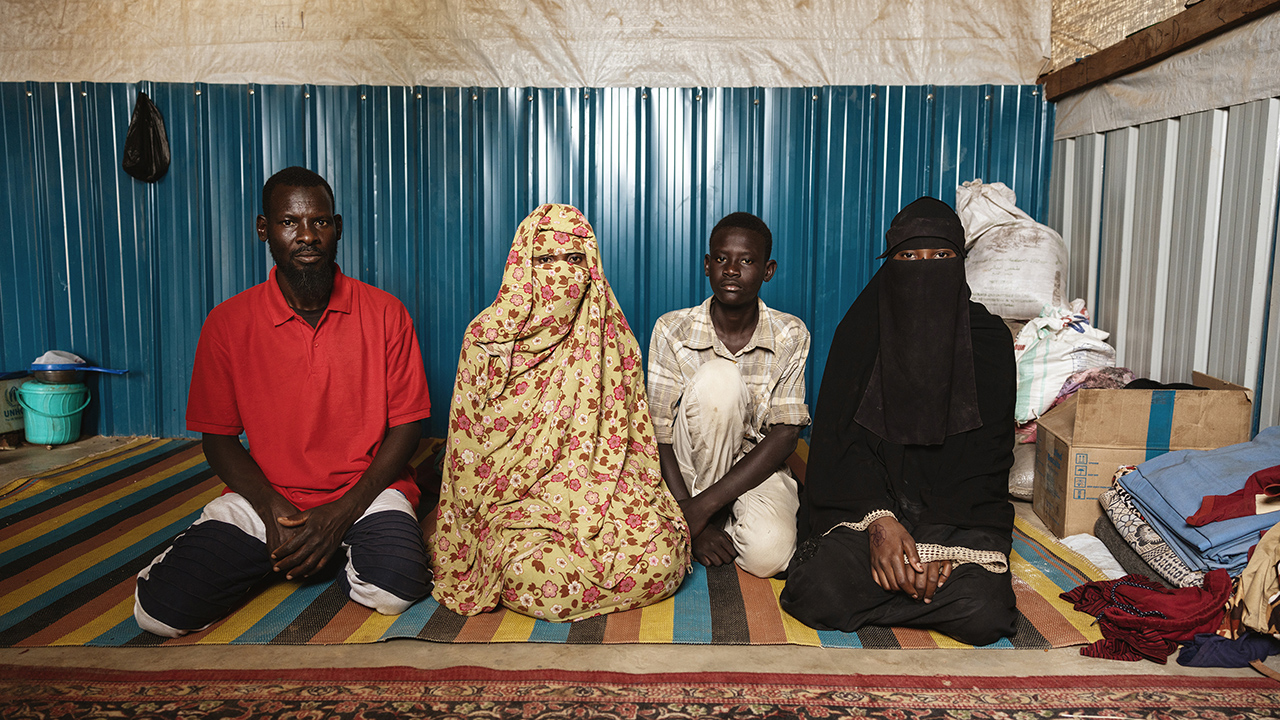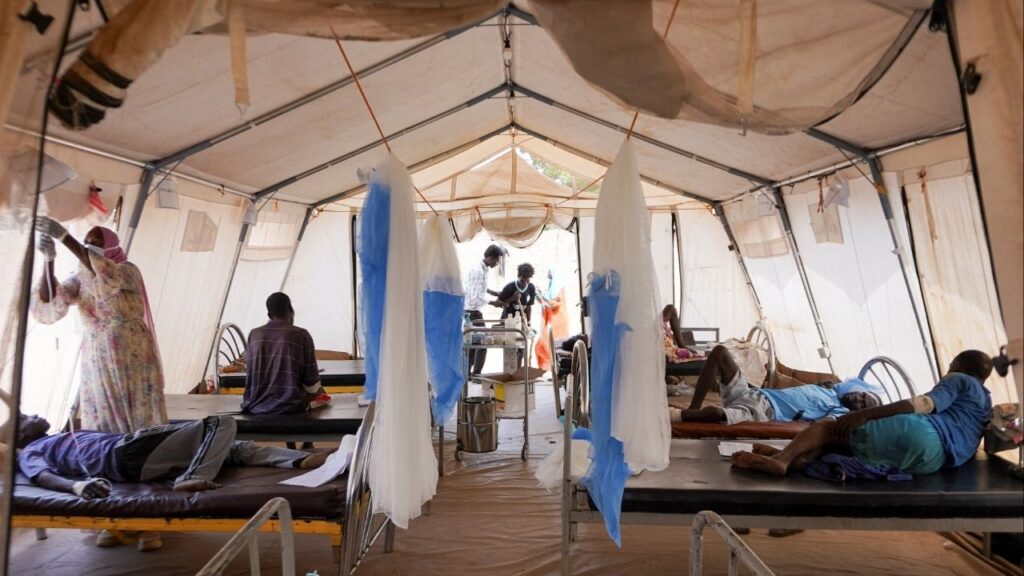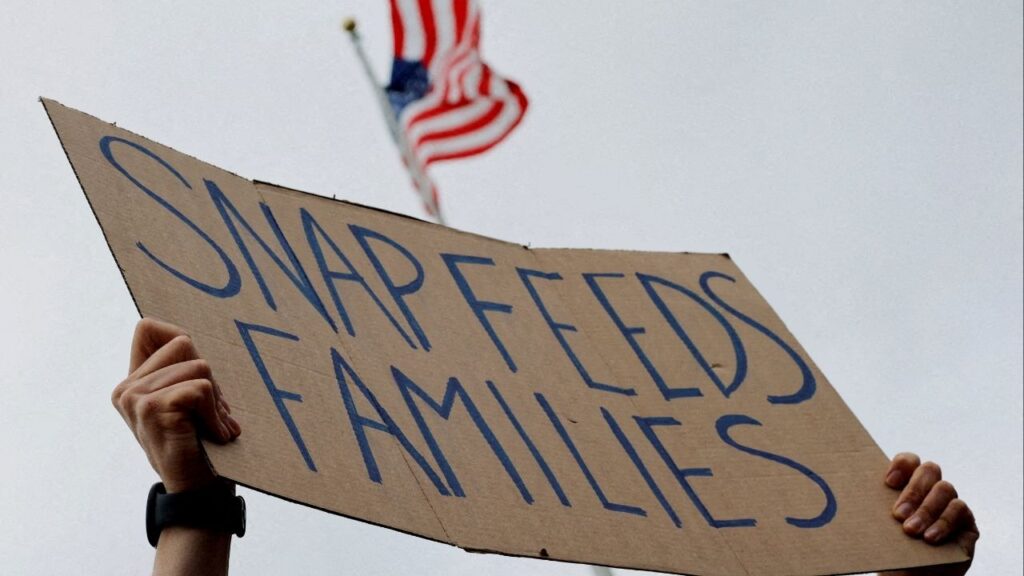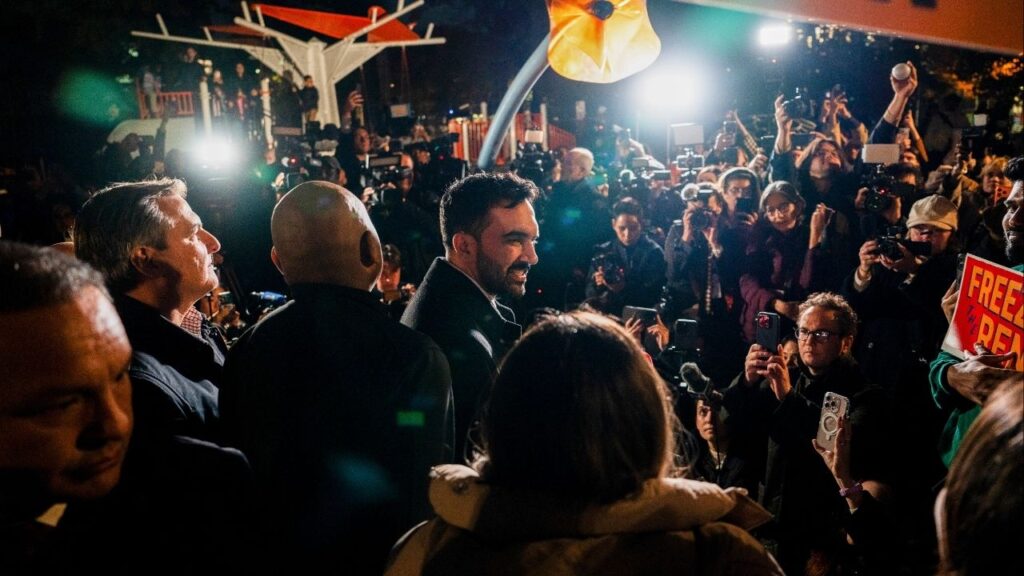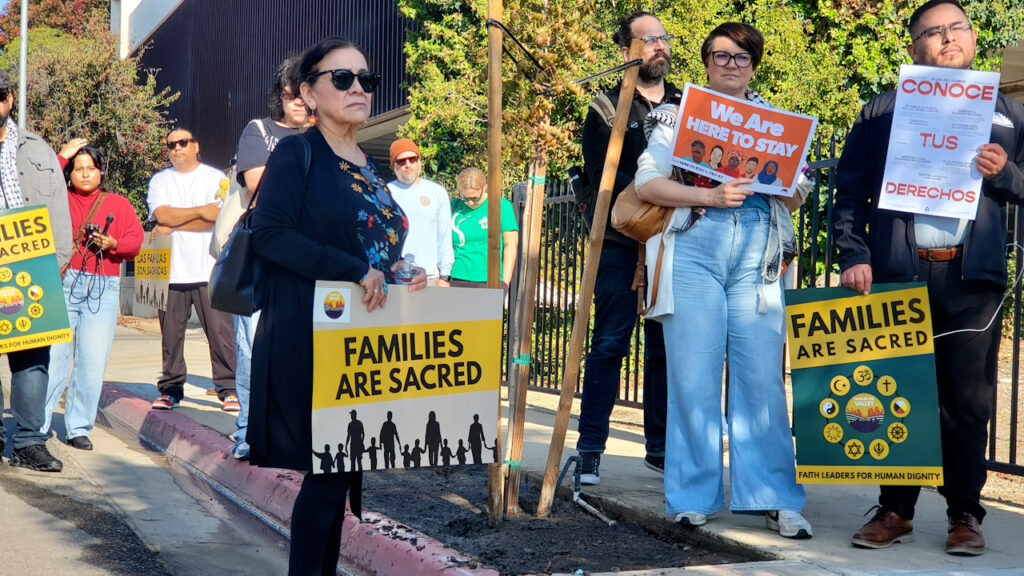Yassin Yakob, left, and Sabah Mohammed, second from left, with their children at the Wedweil Refugee Settlement in South Sudan in March 2025. (Malin Fezehai/The New York Times)

- Refugees fleeing Sudan recount harrowing stories of violence, starvation, and desperation along treacherous escape routes.
- U.S. cuts to humanitarian aid have forced the closure of life-saving soup kitchens, leaving thousands vulnerable to famine.
- The Rapid Support Forces continue to commit atrocities, while the international community remains largely silent on the crisis.
Share
|
Getting your Trinity Audio player ready...
|
AWEIL, South Sudan — The world’s worst humanitarian crisis today is probably the web of famine, civil war, mass rape and other atrocities in Sudan, a nightmare that the United States has formally described as genocide.
Many tens of thousands have been killed, 11 million Sudanese have been displaced, the most lethal famine in decades may be underway, and UNICEF warns that children as young as 1 year old are being raped.
Yet the Trump administration is now cutting back on humanitarian assistance, aggravating the starvation. And neither the Trump administration — nor the Biden administration before it — has been willing to call out the United Arab Emirates for having armed a brutal militia called the Rapid Support Forces that — according to survivors of its rampages — are committing massacres and rapes.
Do President Donald Trump and his aides care about suffering in a distant land? I don’t know, but I think when we hear individual stories it may be more difficult for us to turn away.
With refugees pouring over the border into South Sudan, I visited two spots along the border between Sudan and South Sudan to ask refugees about conditions in places foreign reporters cannot easily reach.
Related Story: Sudan War Is World’s Worst Humanitarian Crisis: 30 Million Need Aid, 16 Million of Them Kids
Refugees Recount Harrowing Experiences
Musa Ali, 32, was an interior designer in Khartoum who lived a good life until the civil war began two years ago between the Sudanese army and the Rapid Support Forces.
An army bomb a year ago destroyed his house and forced the amputation of both his legs, confining him to a wheelchair. Then food shortages grew so severe that neighbors began dying of hunger. Musa’s family members in other parts of the country were able to send him money to buy food.
“We would have died of hunger” if relatives elsewhere had not sent money, he said.
Musa and his wife decided to flee to South Sudan. On the 11-day road journey, they were robbed at checkpoints by soldiers from the Rapid Support Forces, and they saw people killed along the way — mostly men whom the militia suspected were supporting the army. Musa and his wife said they saw more than 100 corpses along the road.
Yassin Yakob and Sabah Mohammed, both teachers, also fled recently from the Khartoum area. They took back roads, so they largely avoided checkpoints. But they said that other vehicles also took those back roads — often trucks carrying dozens of refugees — and when the trucks broke down, people in them often starved to death because there was no food to be had.
“People’s bodies were next to the trucks,” Yassin said. “If your truck broke, you died. There was just no food.”
Related Story: Israeli Airstrikes Kill 26, Including 10 in a Gaza Humanitarian Zone
U.S. Cuts Funding for Humanitarian Aid
Over the last few years, U.S.-supported soup kitchens opened up around the country and saved many lives from famine. But the Trump administration cut funding for those kitchens, called emergency response rooms, and more than 70% have already closed, according to Hajooj Kuka, a Sudanese humanitarian worker. He told me that at just one emergency response room, four children had died recently of starvation. (For those wanting how to help, you can log on to mutualaidsudan.org.)
Manal Adam, 30, grew up in the Darfur region in western Sudan and belongs to an ethnic group targeted in the genocide that began there in 2003; two of her brothers were murdered at the time; she wonders if her mother was raped as well. For a time the assaults subsided, but in the last couple of years the slaughter has resumed.
“It’s like history is repeating itself,” Manal said, and she haltingly recounted how men in Rapid Support Forces uniforms had stopped her on the road, thrown her to the ground and raped her.
After that, she fled to South Sudan with three of her children, hoping to keep them alive. But her husband was elsewhere, and her 9-year-old daughter was with her mother, so she left them behind in her panic. Manal doesn’t know if her husband, mother or daughter are still alive.
Manal is safe in a refugee camp in South Sudan but suffers from pelvic infections from having been raped. And she wilts as she describes her shame as other women point to her and gossip about her.
Related Story: Aid Groups Say Israel Misses US Deadline to Boost Humanitarian Aid Entering Gaza
A Crisis Worsening by the Day
Multiply Manal by millions and you have a glimpse of the metastasizing crisis in Sudan. Famine is spreading, corpses line some roads and the sons of Darfur genocide rapists are now raping the daughters of women who had been assaulted a generation ago.
Rapid Support Forces have besieged the Zamzam refugee camp in Darfur, with 500,000 desperate, hungry people inside and almost no medical assistance, United Nations officials and aid workers say. In a social media post, the attackers have warned: “Zamzam will turn to ashes.”
I suspect that many Americans regard all this is sad but inevitable, viewing Sudan as a bottomless pit of pain that we can’t do anything about. Yet that’s not quite right.
I don’t know if we can end the slaughter. But in the early 2000s the West took actions that reduced the death toll, while this time we are worse than passive. Our cutting of humanitarian aid means more children starving, and our silence about the UAE probably means more atrocities.
That’s the wrenching contrast. A generation ago, Americans were outraged by genocide and acted — not always perfectly — to provide aid and pressure governments in ways that saved lives. Now we are pulling back aid and largely silent about the world’s worst humanitarian crisis, and that comes painfully close to complicity.
Contact Kristof at Facebook.com/Kristof, Twitter.com/NickKristof or by mail at The New York Times, 620 Eighth Ave., New York, NY 10018.
—
This article originally appeared in The New York Times.
By Nicholas Kristof/Malin Fezehai
c.2025 The New York Times Company



